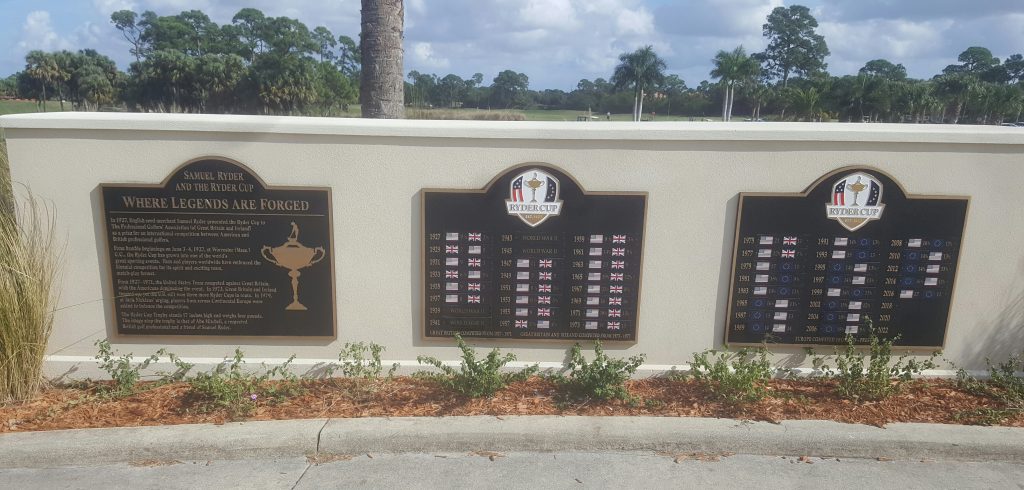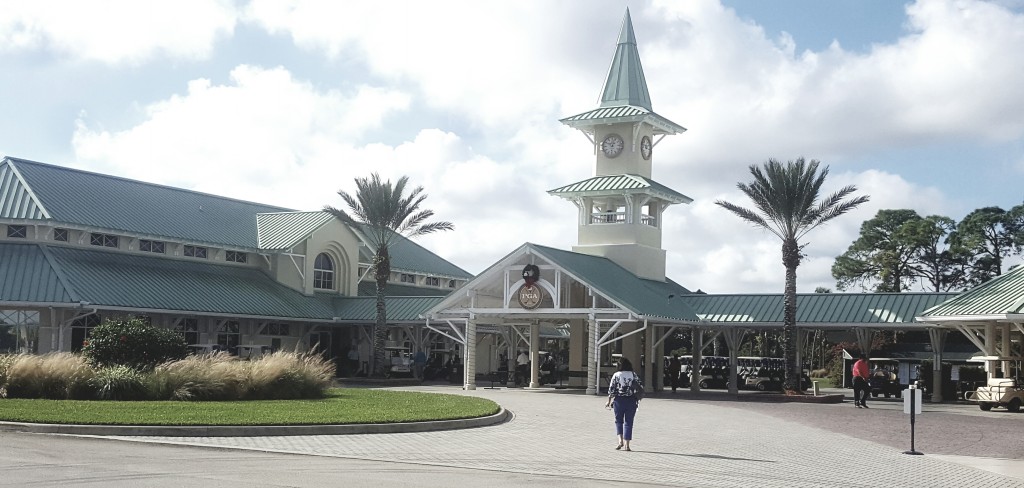
 PORT ST. LUCIE, Florida — The year 2016 has been one of milestones for the PGA of America and its 28,000 members from all parts of the world.
PORT ST. LUCIE, Florida — The year 2016 has been one of milestones for the PGA of America and its 28,000 members from all parts of the world.
The organization’s various centennial celebrations appropriately drew the bulk of the attention, but there was more to 2016 than that – particularly if you’re a fan of the facilities that are owned and operated by the PGA. Both Valhalla Golf Club, in Louisville, and PGA Golf Club, located here, reached milestones as well.
Valhalla, which opened in 1986, turned 30 years old in 2016. Already the site of two PGA Championships, two Senior PGA Championships, the 2002 PGA Professional National Championship and the 2008 Ryder Cup, Valhalla has long been in the spotlight for its tournament resume.
At PGA Golf Club, it’s a different story, yet a very important one for a wide range of golfers. With four 18-hole courses, the PGA’s flagship property is much bigger than Valhalla and the winter home for the PGA’s far-reaching membership. The general public has gotten to know and love the resort’s courses as well.
PGA Golf Club concludes its 20th season in 2016. Its story isn’t as high profile as that of the organization as a whole or even that of the younger Valhalla, but it is well worth telling. It reflects the overall dedication of the PGA membership, which had a big honor to celebrate this week when the club was among five named in the inaugural “Most Improved Courses of the Year’’ poll conducted by Golf Inc. magazine.
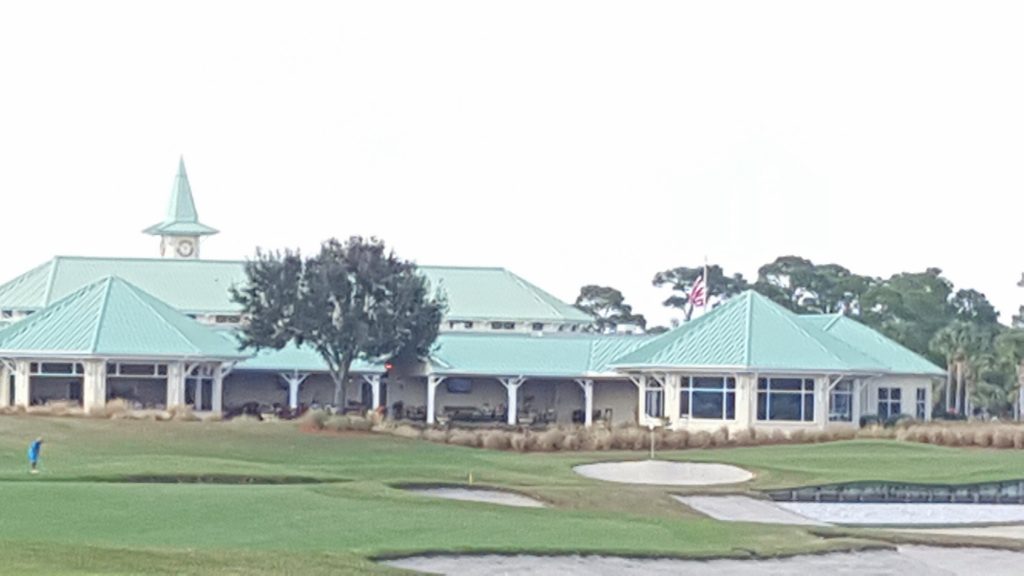
The award isn’t the first for PGA Golf Club, but it does serve as a reward for the work put in by its staff and the PGA as a whole over the last few years. A little historical perspective will be helpful.
PGA Golf Club opened its doors on Jan. 1, 1996. The first tee shot was struck on what was then called the North Course. Four months later the South Course was ready for play as well. Both were designed by Tom Fazio, who proved an excellent architectural choice. No designer has more credits on Golf Digest’s prestigious list of America’s Greatest Golf Courses than Fazio. He has designed more than 200 courses in a 40-plus year career.
Port St. Lucie, which is now a mecca for golfers, had a much different look when Fazio did his creative work on the PGA Golf Club’s first two courses. The nearest quality course was a private layout called The Reserve, which was co-designed by his uncle (former PGA Tour player George Fazio) and his older brother (Jim Fazio). The Reserve, now called The Legacy, opened on Jan. 1, 1984.
The area needed more courses at that time, and PGA Golf Club was created to fill that need.
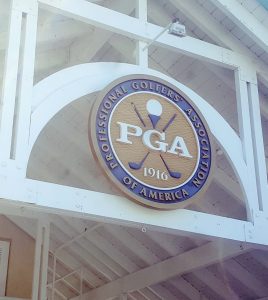
“There wasn’t much over there then,’’ said Jeff Hartstine, who built the two courses that Tom Fazio designed. “It was a pretty standard construction endeavor – nothing unusual, no sink holes, no water problems.’’
Hartstine went on to build courses for Arnold Palmer and Greg Norman, then sold his sod farm in 2004 and bought a course, Placid Lakes, in Lake Placid, FL. He isn’t much involved in golf course construction now but did enjoy the “explosion’’ that came around the time the North and South courses opened.
Growth came fast — maybe too fast. Pete Dye designed a third course at PGA Golf Club that had a soft opening in 1999 and an official debut in 2000 and a Learning Center also opened in December of 1999. Another Jim Fazio design, a nearby private facility then called PGA Country Club that had opened in 1988, was also in the mix but the heart of PGA Golf Club remained its original pair of 18-holers.
After enduring 10 years of play both were due for updating and that went beyond work on the courses. Each got a name change as well in 2006. The North became the Ryder Course, in honor of Samuel Ryder – the namesake and founder of the premier team event in golf. The South became the Wanamaker Course, honoring businessman Rodman Wanamaker who was instrumental in the birth of the PGA of America a century ago.
Over the years the Ryder and Wanamaker hosted a wide variety of competitions in addition to public play. The Ryder got the reputation for being the more player-friendly, with its wide fairways and putting surfaces that didn’t have many severe breaks. The Wanamaker became recognized as one of the best – and most beautiful – courses in all of golf-rich Florida.
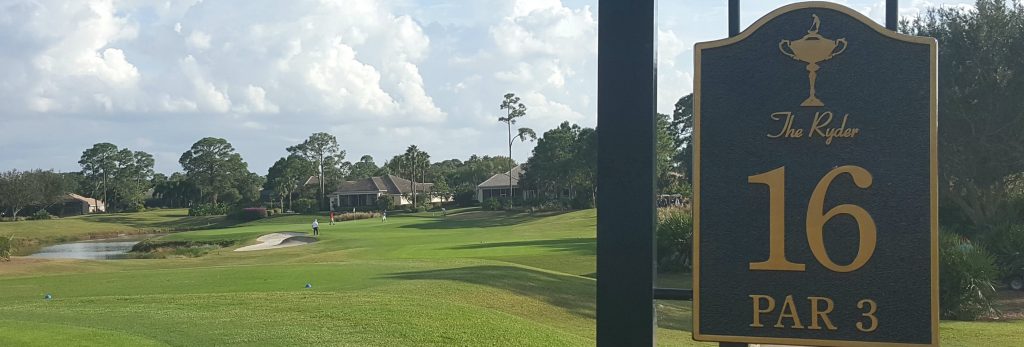
In a five-year period after the 2006 renovations both courses took a beating and that led to more soul-searching on the PGA’s part. Play was down and more work needed to be done.
“We saw the challenge we were facing,’’ Jimmy Terry, the club’s general manager, admitted earlier this fall. “We had a five-year plan and had the complete, absolute, ultimate support from the PGA of America on what we wanted to do. We started with a very simple thing. We wanted to make sure our courses were commensurate with what would make the PGA of America members proud to call it their winter home.’’
The five-year plan is more than half over now, and it has already impacted the Wanamaker. Last year that course got new fairways, a project engineered by director of agronomy Dick Gray. The results have been well received, and the Ryder was to be upgraded next.
“That was going to be the next step,’’ said Terry, “but — because we had a couple large events scheduled for this fall – we didn’t want to take a risk. We couldn’t risk that the golf course might not be prepared in time.’’
So, instead of closing the Ryder, the Dye Course got a renovation instead. Like the Wanamaker, it was similarly well received.
“Our final step will be to do the Ryder Course next year,’’ said Terry. “At the end of the five years we will have touched every golf course and clubhouse. The response from our members has been very positive. Our private club memberships have been the highest they’ve ever been and the rounds of golf are back to a level where we’re happy with them.’’
The judges in Golf Inc. magazine’s “Most Improved Course’’ poll were impressed. They appreciated a 10.5 percent membership increase and the multi-million dollar capital improvements required for the first two renovations. Also of note was the 150 percent participation increase in social and golf events at the Wanamaker.
Now the Ryder will get the attention it needs, and that could create changes in the course rankings.
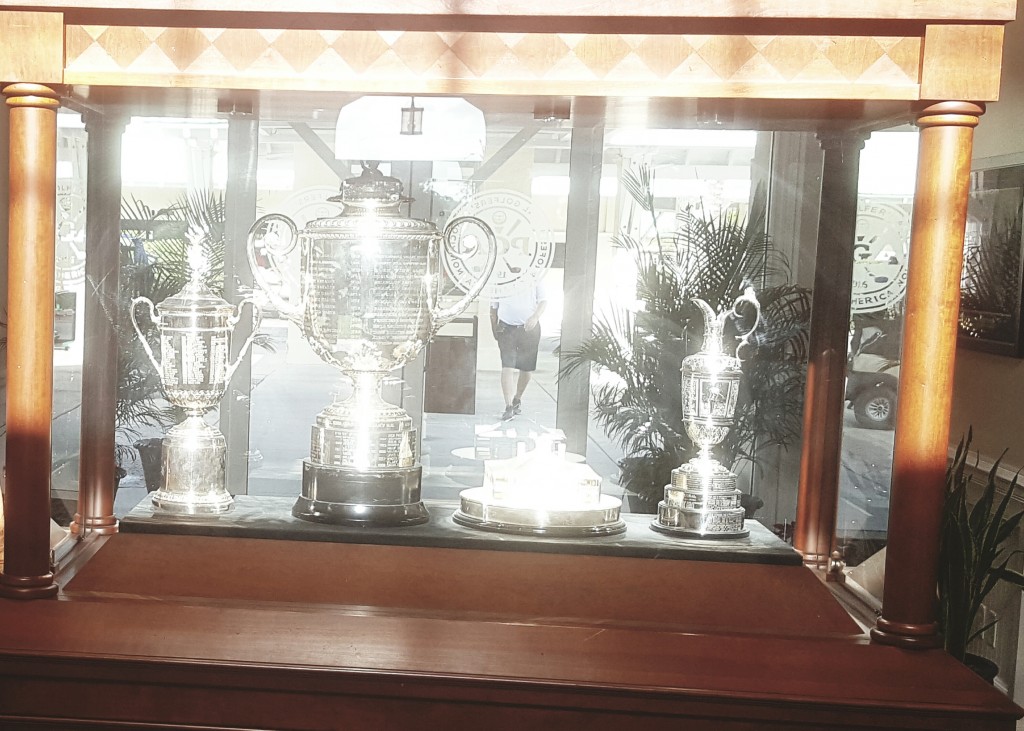
Golfweek had the Wanamaker No. 16 and the Dye No. 27 in its latest rankings of Florida public courses and Golf Magazine had the Wanamaker No. 23 and the Dye No. 30. The Ryder wasn’t a factor in either poll, which surprised me after rounds at all three of those courses.
A round at the Wanamaker won’t be forgotten thanks to the backdrop of wetlands and palm trees that give the course its beauty. The Dye’s most creative design makes for a fun round and the Ryder has its charm, too.
Its No. 16 hole may be the most beautiful par-3 on the property. With its ample fairways, the Ryder offers a pleasant, relatively stress-free adventure that gets more interesting as the holes wind down. Nothing wrong with a round like that.
Even without the Ryder redo, we found the conditioning on all three courses excellent – a most noticeable improvement over our last visit to the area four years ago – and that carried over to the clubhouse atmosphere as well. The trophy display near the historic Taplow Pub underscores the better overall display of clubhouse memorabilia and isn’t to be missed.
